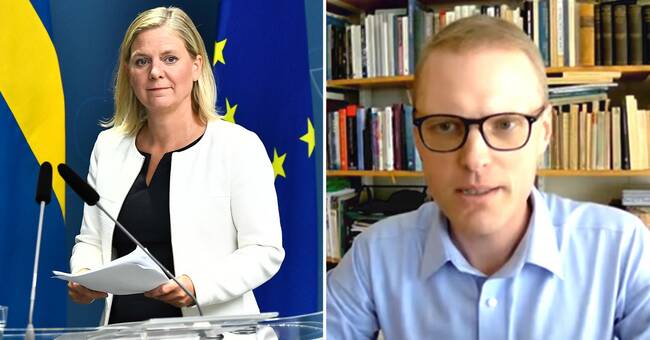Although the budget is presented in its entirety only on Monday, large parts of it have already been announced.
Among other things, the government and the coalition parties have agreed that SEK 13.5 billion will go to reduced income tax, SEK 20 billion to welfare and SEK 10 billion to climate initiatives.
- This budget stands out a lot.
We have to go back to the financial crisis in the early 1990s to find a budget balance of these measures, says Fredrik NG Andersson, associate professor of economics at Lund University.
"It will be difficult to come back"
As there is expected to be a large deficit in public finances this year, both temporary and permanent expenditures in the budget will be financed with the help of loans, which according to Fredrik NG Andersson may damage the Swedish economy in the long run.
- You should not borrow for expenses that remain in the future.
If you want to do something beyond what you can afford, you can either raise the tax or reduce the expenses for something else.
We have had this principle since the 1990s, which has created very strong government finances.
It will be difficult to get back to that situation ..
- Politicians use the crisis to spend more money than they would otherwise have done, he says.
Must get the jobs back
The fact that Sweden has a low central government debt compared to many other countries has been used as an argument for borrowing more during the corona crisis.
But then the money must also be used in the right way, says Annika Alexius, professor of economics at Stockholm University.
- I think to some extent that they want to make it look like they are doing something and therefore spend tax money quite carelessly, especially towards companies, she says.
Katarina Nordblom, associate professor of economics at the Gothenburg School of Economics, also believes that it may be a long time before Sweden sees a surplus in the budget again, but believes that the loans are necessary to start production and demand.
- This is not a good situation to raise taxes, but now you need to get people back to work.
We do not know how permanent these investments will be, but I think you need to be a little long-term to get things going, she says.

